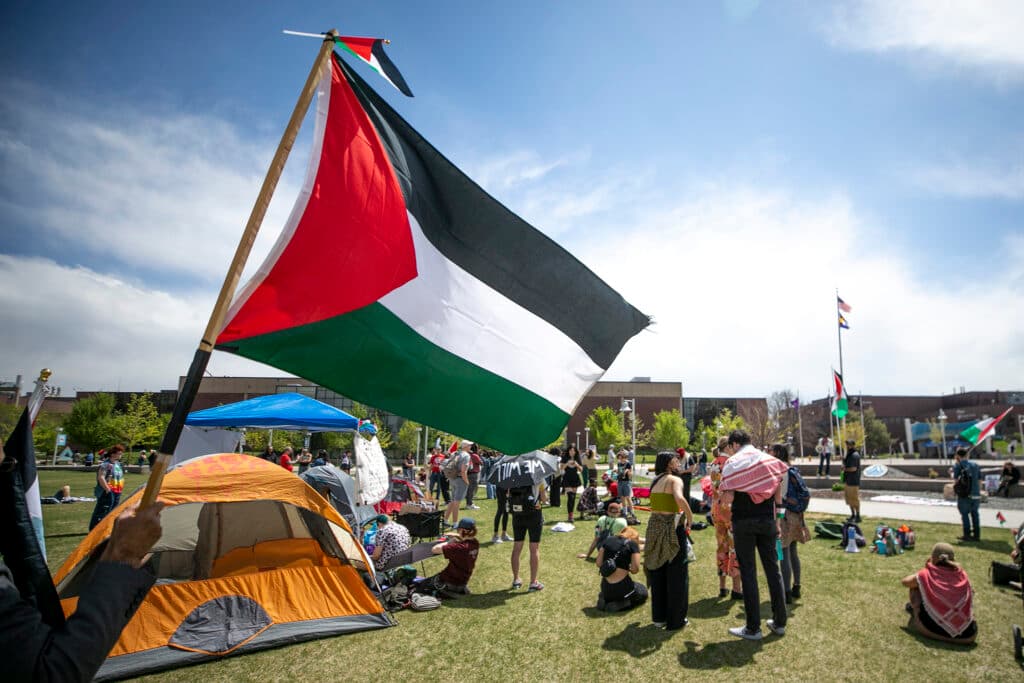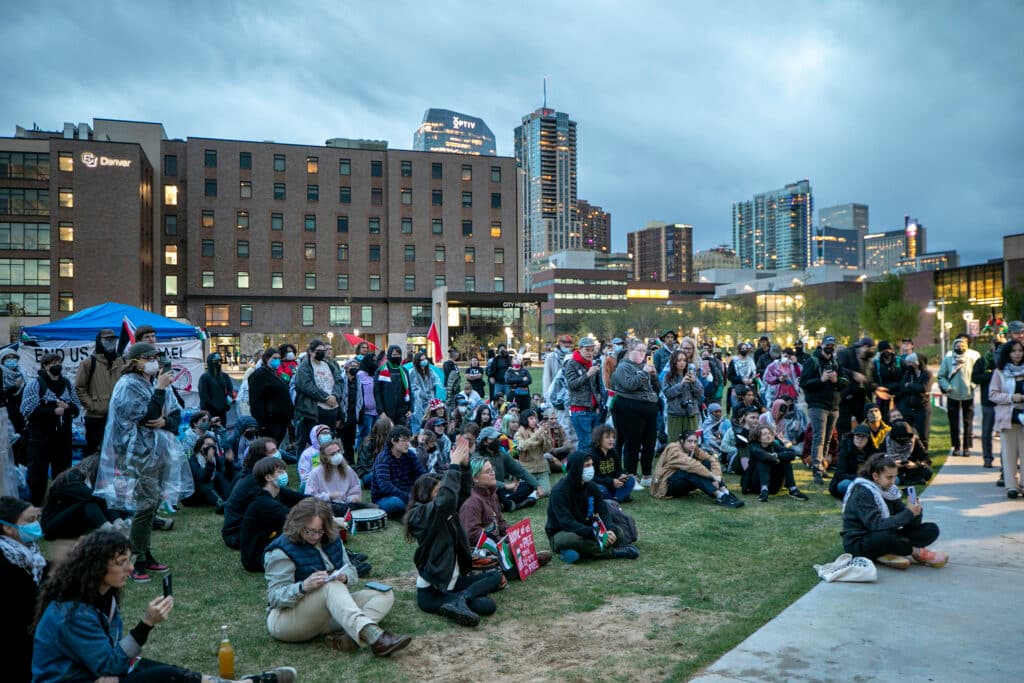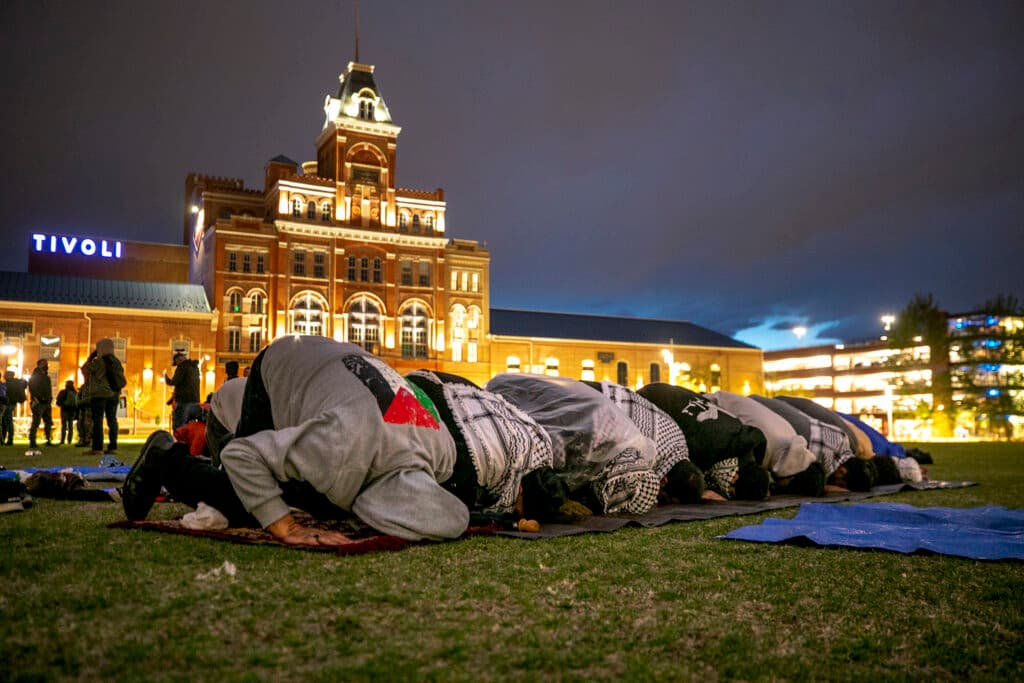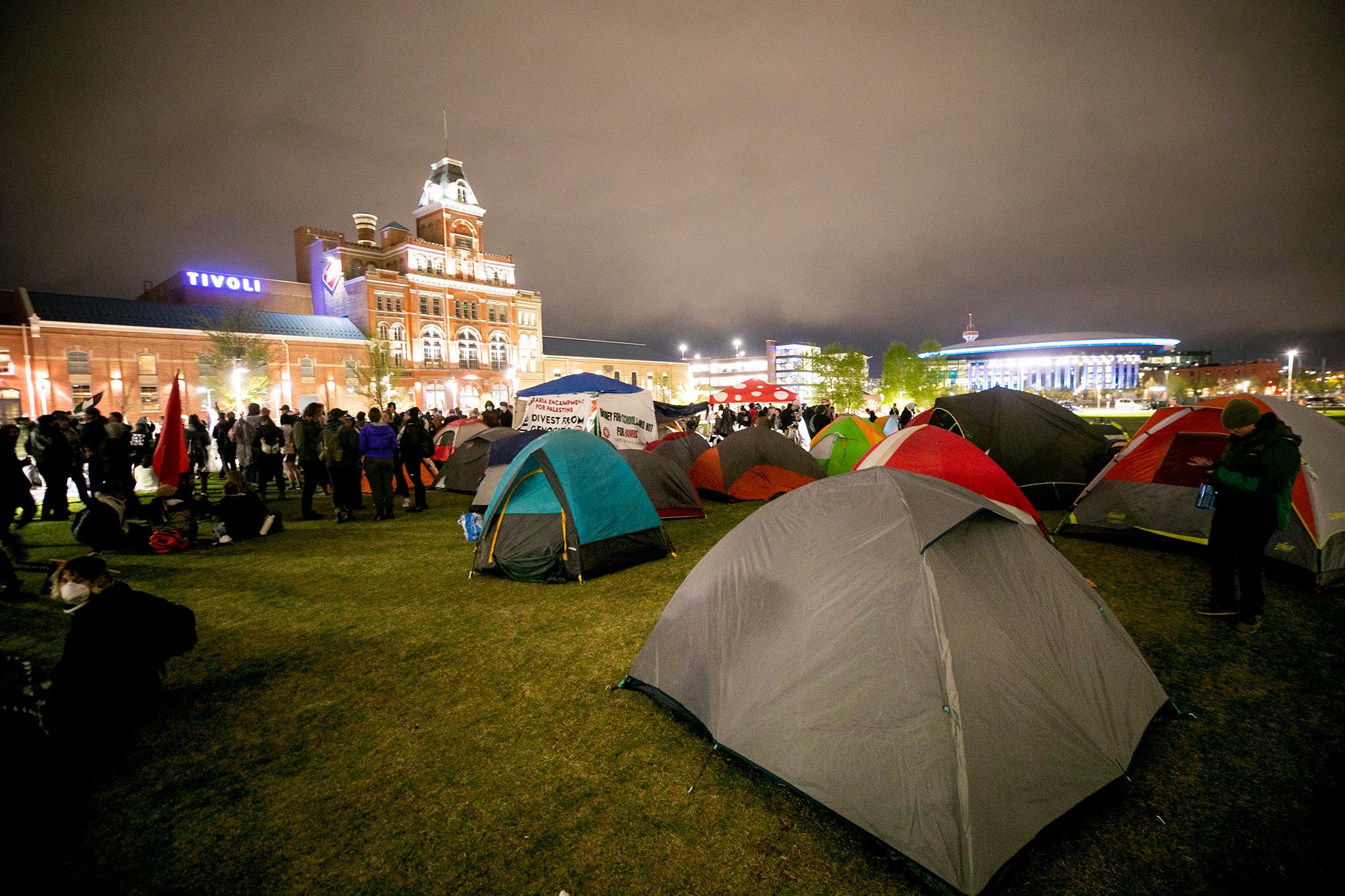Updated at 12:07 p.m. on April 26.
Joining students on college campuses across the country, organizers with Students for a Democratic Society started an encampment at Auraria Campus Thursday to protest Israel’s war in Gaza, which has killed about 34,000 Palestinians according to recent reporting from the New York Times.
As of Friday, a campus spokeswoman said, so far, there have been no arrests.
"We fully support the right of students to assemble peacefully," a statement released by the Auraria Higher Education Center read. "Still, it's essential to note that Auraria Campus policy prohibits camping on the premises because of health, safety, and security considerations."
The statement also warned of individuals who have falsely presented themselves as representatives of Auraria's higher education institutions. All faculty and staff have official badges for identification purposes, the statement added.
While pro-Palestinian organizers have been protesting the war for months, a newer wave of protests has been sweeping the U.S. after college administrators at Columbia University suspended students and police made arrests at an encampment at the university’s campus in New York City last week. Since then, police have arrested student protesters across the country, with some campuses switching to remote classes through the end of the semester over security concerns.
Like students nationwide, the protesters at Auraria Campus, home to three colleges and universities, want college administrators to take a public stance against the war and sever any financial ties the institutions have to Israel — including investments and grants. On Thursday afternoon, students passed out rain ponchos and prepared to hunker down as wind blew and rain started. Students chanted “dare to struggle, dare to win,” while later in the afternoon another small group of students knelt in prayer.
Paul Nelson, a communications student at Metropolitan State University of Denver and an organizer with Students for a Democratic Society said students in Denver are following the lead of students at Columbia.
“I think it's important that we stand for peace, stand against genocide and war, whatever the option is presented to us. And so here's one of those historical turning points,” Nelson said.

In a statement Thursday, the student organizers sent a list of demands, which include a statement from the University of Colorado “condemning the genocidal actions of Israel,” a meeting with CU Denver Chancellor Michelle Marks, divestment from any corporations operating in Israel, transparency around investments and an end to University of Colorado study abroad programs in Israel.
The organizers also want CU’s administration to sever ties with and refuse grants from companies that contract with the U.S. military. That could affect programs like CU’s aerospace engineering department, which works with companies like Lockheed Martin. According to federal data, the University of Colorado Denver has accepted nearly $3 million in contracts with Israel since 2016.

Khalid Hamu, an organizer and computer science student at CU Denver, said he was moved to action after seeing images of the aftermath of the war in Gaza.
“Student Action is what got us a lot of things. It's what got us the first College of Ethnic Studies,” Hamu said. “So we, I, understand, we have to get organized, and we have to bring the fight to [the administration].”
The University of Colorado and Auraria Higher Education Center did not immediately respond to a request for comment.
The encampment at Auraria Campus is the latest in a string of protests against the war both in Denver and nationwide.
Those protests kicked off in October, when the militant group Hamas attacked Israel, killing more than 1,400 Israelis and taking more than 200 people hostage, some of whom remain in Gaza. Israel responded by invading Gaza, which has been under blockade by Israel and Egypt since 2007.
Since then, about 34,000 people have been killed in Gaza, according to The New York Times. Humanitarian aid officials are also warning that famine could soon take hold in Gaza.
Colorado Public Radio reporters Paolo Zialcita and Lauren Antonoff Hart contributed reporting.














